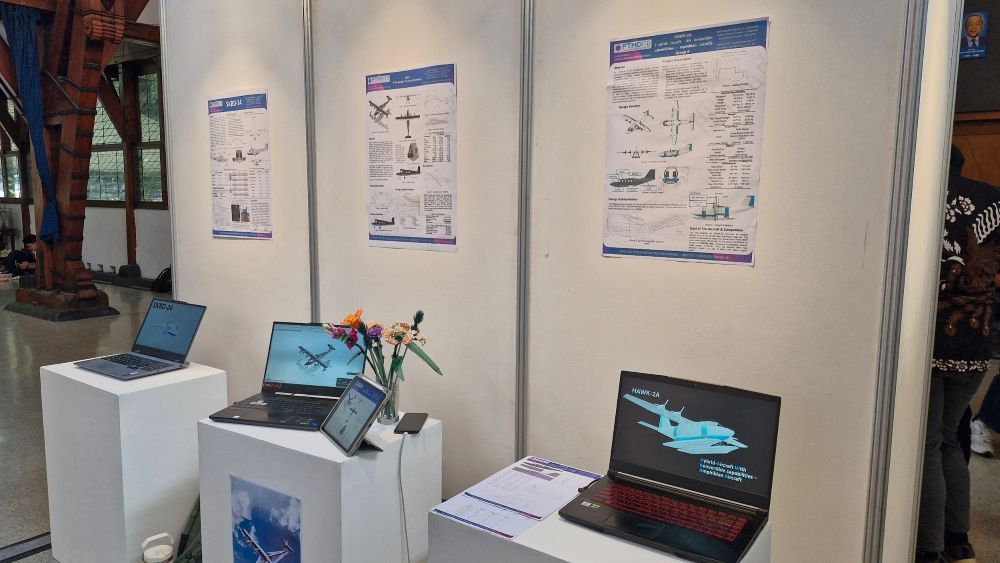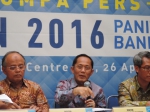Establishing a Smart Learning Environment with Information, Communication, and Multimedia Technology
By Adi Permana
Editor Adi Permana

BANDUNG, itb.ac.id—The goal of providing education is to create intelligent, noble graduates; thus, digital transformation that is centered on instructors is highly encouraged to create a good teaching and learning environment.
Prof. Yusep Rosmansyah, S.T., M.Sc., Ph.D. from the School of Electrical Engineering and Informatics of ITB explained such an environment at the Professor's Scientific Oration held on Saturday (11/2/23). He introduced the three fundamental aspects of intelligence: cognitive, character, and psychomotor. Based on several studies, there are 36 abilities or intelligence that are needed by students. They are grouped into three categories, namely the technical (hard skills), intrapersonal (soft skills), and interpersonal abilities (humanistic skills).
Technical intelligence is based on subject-matter mastery. For instance, Chemical Engineering students are expected to excel at this study compared to other fields. On the other hand, intrapersonal intelligence focuses more on strengthening the personal mindset of individuals. Interpersonal intelligence is the ability of a person to be able to work and cooperate in a team.
The stigma of ITB students often being individualistic must be erased in the future. "From these three, both intrapersonal and interpersonal intelligence are the ones that will take longer to be perfectly imitated or replaced by artificial intelligence," Prof Yusep stated. On another note, both must be honed and developed by oneself.
Learning in an SLE (Smart Learning Environment) is mainly indicated and assessed by participants' happiness. In addition, the learning process must be effective and efficient in engagement and time management. "Classroom learning sessions must have an element that engages the students, be it offline or online." Hence, Prof. Yusep stated that a lecturer should inspire their students.

SLE - or known as the "intelligent teaching environment"- is a blended learning system that provides an enjoyable learning process while transcending targets with the help of smart tools and techniques. The role of ICMT (information, communication, and multimedia technology) is more important than ever to build up educators as the main actors in the environment.
"Macro-wise, SLE can be done by one institution such as ITB itself. Micro-wise, however, requires all classes to have the atmosphere of smart studying regardless of the current facilities or tools," Prof. Yusep explained.
Lecturers first need to view studying with a mindset focusing on one's growth. Sharpening one's skills is essential as well, especially when implementing multimedia during the COVID-19 pandemic. The last important factor in establishing an SLE is implementing a toolset or application.
According to Prof. Yusep, the following are the seven qualities lecturers should have.
1. Have a minimum standard of quality in teaching
2. Can adapt teaching different contents to suit the current generation of learners,
3. Be a wise evaluator
4. Studied pedagogy
5. Can use teaching tools such as the LMS
6. Literacy in technology
7. Good motivator for their students
"Multimedia has enabled personalized learning," Prof. Yusep added. ICMT allows students to pursue their personal interests and careers better.
ICMT in universities can provide a more relevant and exciting learning experience. Aside from facilitating case studies and project-based learning, students can do experiential classroom learning via simulation or virtualization. Wider learning opportunities are offered to facilitate collaboration between students and educators. Finally, the technology helps create a more comprehensive and integrity assessment.
Prof. Yusep ended his discussion with a list of challenges in digital transformation and advised everyone to instill a growth mindset, reskill and upskill their abilities, as well as to transform their working culture.
Reporter: Athira Syifa PS (Postharvest Technology, 2019)
Translator: Ruth Nathania (Environmental Engineering, 2019)

.jpg)
.jpg)
.jpg)
.jpg)
.png)



